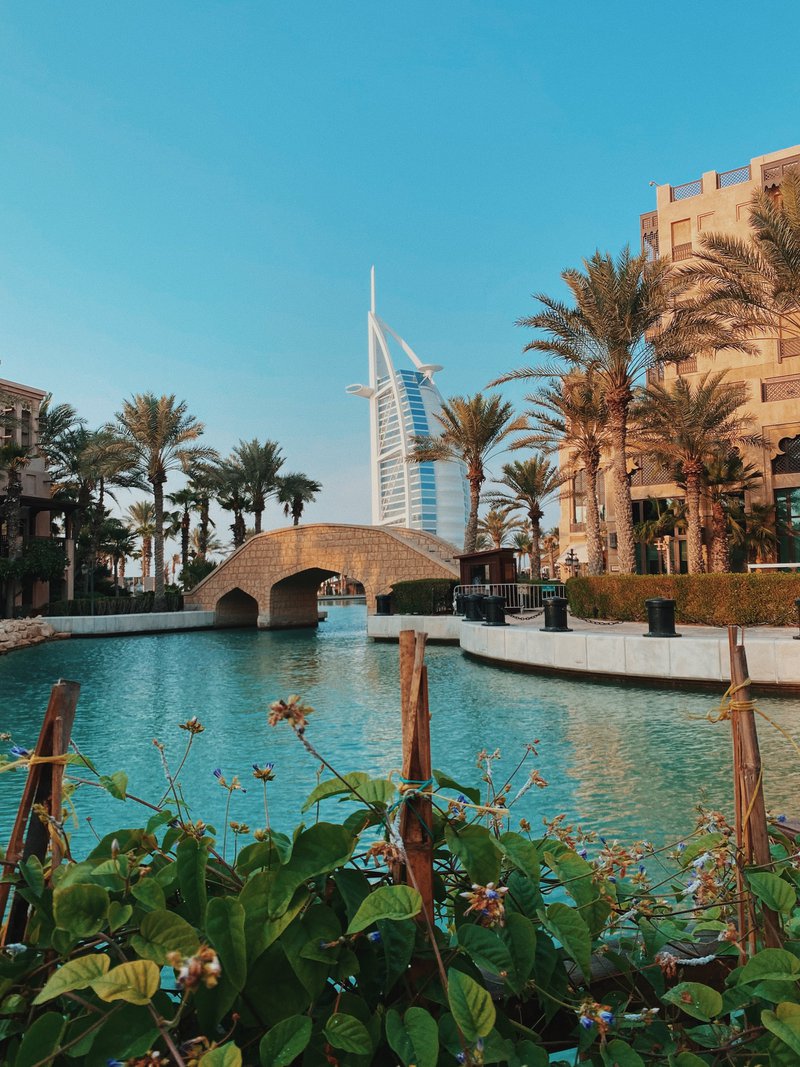Dubai, the dazzling jewel of the United Arab Emirates, is not only famed for its towering skyscrapers, vibrant nightlife, and luxurious hotels but also for its thriving hospitality sector. As we delve into this comprehensive guide to Dubai hospitality sector investments in 2023, we'll uncover the compelling reasons why this sector presents an attractive avenue for investments. Furthermore, we'll highlight the strategic importance of Dubai's tourism industry and the abundant potential it holds for future growth.
Dubai, the bustling metropolis where tradition meets innovation, has evolved from a modest trading port into a global destination for both business and leisure travelers. Its ultramodern architecture, diverse culinary scene, and opulent lifestyle have drawn visitors from every corner of the world. Naturally, this surge in tourism has propelled Dubai's hospitality industry into a lucrative investment opportunity.
In this guide, we will explore the multifaceted landscape of Dubai's hospitality sector, uncovering current Dubai hotel investments trends, analyzing market demand, and elucidating the factors that pique the interest of savvy investors.
Investment Landscape in Dubai's Hospitality
Recent Trends and Market Demand
Dubai's hospitality sector is a dynamic arena, constantly evolving to meet the ever-changing needs of its diverse clientele. Recent Dubai tourism trends suggest a robust demand for unique and immersive experiences, driving investments in boutique hotels, themed resorts, and wellness retreats.
The hosting of Expo 2020, postponed to 2021 due to global events, remains a pivotal moment for Dubai. The world expo not only attracted millions of visitors but also catalyzed investments in hotel infrastructure, creating a ripple effect of tourism investment opportunities for investors.

Factors Driving Investor Interest
- Expo 2020: This global event showcased Dubai on an unprecedented scale, leaving a lasting impact on the city's reputation as a hub for innovation and progress. Investors recognize the Expo's role in shaping the city's future and are keen to capitalize on its aftermath.
- Rising Tourism: Dubai's strategic location, world-class infrastructure, and attractions make it a magnet for tourists. The city's ability to cater to both leisure and business travelers has cemented its position as a year-round destination.
Types of Hospitality Investments
Dubai's hospitality sector offers a spectrum of investment avenues, each with its own set of advantages and considerations. Understanding the nuances of these options is crucial for prospective investors:
Hotels and Resorts
Investing in hotels and resorts provides an opportunity for substantial revenue generation, especially in prime locations. However, it involves significant capital outlay, operational complexities, and susceptibility to market fluctuations.
Serviced Apartments
Serviced apartments, also known as apartment hotels, cater to longer-term guests seeking the comforts of home combined with hotel services. These can be an attractive investment due to lower operational costs and potential for consistent rental income.
Vacation Rentals
The vacation rental market has surged in recent years, thanks to platforms like Airbnb. While this can offer flexibility and higher yields, it may require more active management and regulatory compliance.
Key Areas of Investment
Dubai's hospitality market is diverse, but certain areas stand out as particularly promising for investors:
Dubai Marina
Dubai Marina, with its stunning waterfront views, remains a hotbed for hospitality investments. Its proximity to popular attractions and vibrant nightlife make it a prime location for hotels, serviced apartments, and vacation rentals.
Downtown Dubai
Home to iconic landmarks like the Burj Khalifa and Dubai Mall, Downtown Dubai attracts millions of visitors annually. Investments here promise high occupancy rates and premium pricing.
Emerging Tourism Hotspots
Dubai's commitment to tourism extends beyond its core districts. Emerging areas like Dubai South, Dubai Sports City, and Al Maktoum International Airport's vicinity offer opportunities for early-bird investors.
Regulatory Considerations
Before venturing into Dubai's hospitality sector, it's imperative to navigate the regulatory landscape:
- Ownership Rules: Foreign investors can typically own hospitality assets in designated areas or through partnerships with local entities. Familiarizing oneself with ownership rules is crucial for a compliant investment strategy.
- Licensing: Hospitality businesses require licenses from relevant authorities, such as the Department of Tourism and Commerce Marketing (DTCM). Compliance with licensing and permitting processes is essential for legal operation.
Analyzing Returns on Investment
Dubai's hospitality sector is known for its potential for attractive returns. Key performance indicators include:
- Occupancy Rates: High occupancy rates, especially during peak seasons, can significantly impact revenue streams.
- Average Daily Rates (ADR): ADR reflects the average price guests pay per room. Effective pricing strategies can optimize profitability.
- Capital Appreciation: The appreciation of hospitality real estate over time can enhance the overall return on investment.
Risk Mitigation and Market Challenges
While Dubai's hospitality sector offers immense potential, it's not without its challenges:
- Market Saturation: Certain segments of the market may experience saturation, increasing competition and potentially impacting profitability.
- Economic Vulnerability: The hospitality industry is sensitive to economic downturns, making it essential to have contingency plans for uncertain times.
- Regulatory Changes: Dubai frequently updates its regulations. Staying informed and adaptable is crucial to navigate regulatory shifts effectively.

Funding and Financing Options
Prospective investors can explore various financing options to enter Dubai's hospitality sector:
- Bank Loans: Traditional bank loans offer a reliable source of financing, often with competitive interest rates.
- Partnerships: Collaborating with local or international partners can provide access to capital and local expertise.
- Potential Sources of Funding: Government incentives, grants, or investor programs may offer additional funding opportunities.
Conclusion
In conclusion, Dubai's dynamic hospitality sector represents a compelling opportunity for investors seeking both financial rewards and a stake in the city's vibrant future. The confluence of Expo 2020's impact, rising tourism, and a diverse array of investment avenues make Dubai an attractive destination for those looking to expand their portfolio.
As Dubai continues to evolve as a global tourism and business hub, the Dubai hospitality sector remains a cornerstone of its success story. To truly unlock the potential of Dubai's dynamic hospitality sector, investors should embrace the city's spirit of innovation, adaptability, and unwavering commitment to delivering exceptional experiences. By doing so, they can position themselves for a prosperous journey in this ever-thriving industry.




